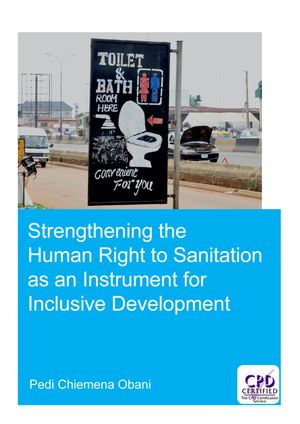
eTEXT
Strengthening the Human Right to Sanitation as an Instrument for Inclusive Development
By: Pedi Obani
eText | 3 May 2018 | Edition Number 1
At a Glance
eText
$239.80
or
Instant online reading in your Booktopia eTextbook Library *
Read online on
Desktop
Tablet
Mobile
Not downloadable to your eReader or an app
Why choose an eTextbook?
Instant Access *
Purchase and read your book immediately
Read Aloud
Listen and follow along as Bookshelf reads to you
Study Tools
Built-in study tools like highlights and more
* eTextbooks are not downloadable to your eReader or an app and can be accessed via web browsers only. You must be connected to the internet and have no technical issues with your device or browser that could prevent the eTextbook from operating.
ISBN: 9780429865978
ISBN-10: 042986597X
Series: IHE Delft PhD Thesis Series
Published: 3rd May 2018
Format: ePUB
Language: English
Publisher: Taylor & Francis
Edition Number: 1
You Can Find This eBook In
This product is categorised by
- Non-FictionEngineering & TechnologyCivil Engineering
- Non-FictionEngineering & TechnologyEnvironmental ScienceSanitary & Municipal EngineeringWater Supply & Treatment
- Non-FictionIndustry & Industrial StudiesEnergy Industries & UtilitiesWater Industries
- Non-FictionEarth Sciences, Geography, Environment, PlanningEarth SciencesHydrology & The HydrosphereLimnology & Freshwater
- Non-FictionEngineering & TechnologyEnvironmental Science
























